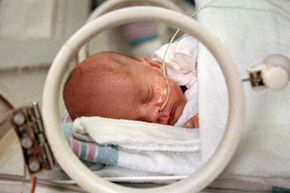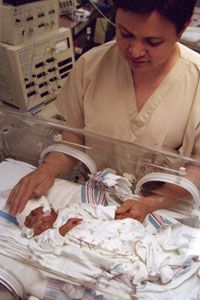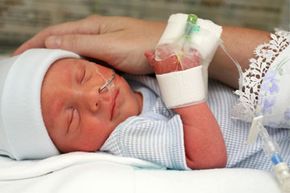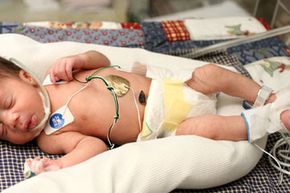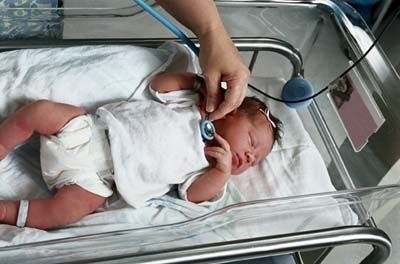Babies who are born with special circumstances, such as illness, infection, respiratory problems, problems during delivery, birth defects or those who arrive too early are often cared for by a special team of health care professionals in a special unit of the hospital -- the neonatal intensive care unit, or NICU.
According to the March of Dimes, every year about 10 to 15 percent of American babies are treated in the NICU. Vicky Leland, a registered nurse and the regional director of NICU Family Support, West Region, for the March of Dimes, answers our questions and shares experiences as a 20-year veteran of the NICU.
Advertisement
First, we asked Vicky to explain what the NICU is.
"A general, good definition is a place in the hospital for babies who require more than routine care. That could be a course of antibiotics or extremely high-level intensive care. There is a real variety in the types of babies in the NICU. There are one-pound babies hooked to a lot of machinery as well as babies who look healthy, chubby and fat, and are there for special feeding or IV [intravenous] meds. There are also babies who need surgical intervention."
Keep reading to see what, exactly, brings a baby to the NICU.
Advertisement
